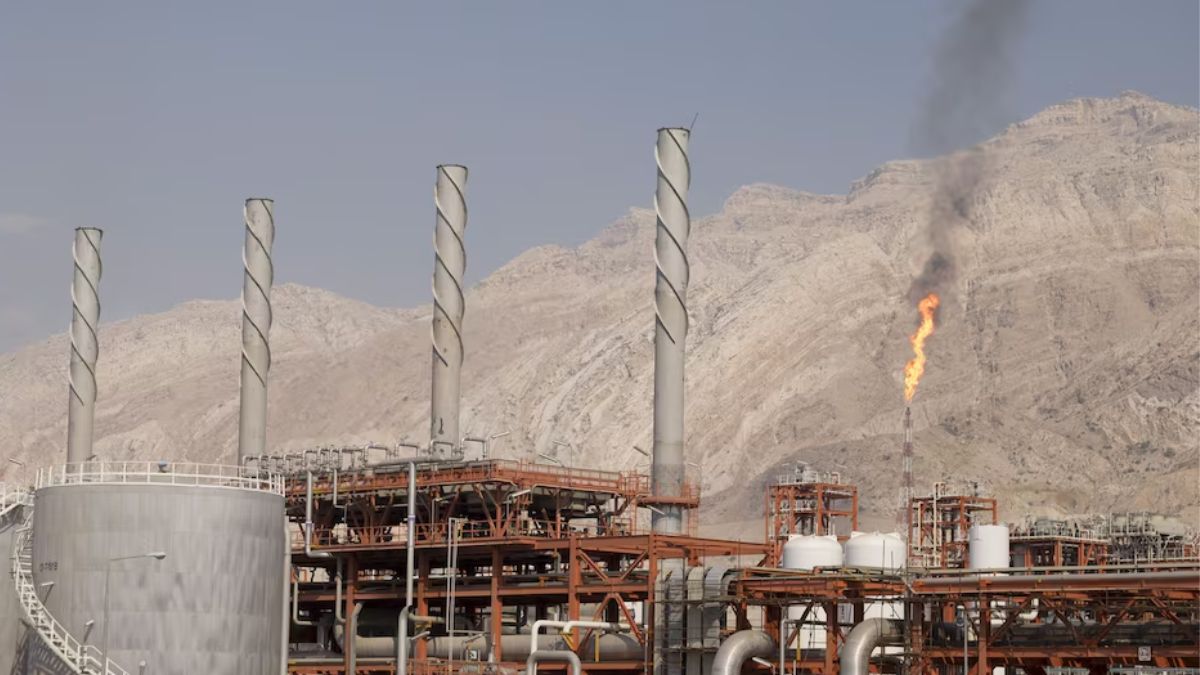- By Aashish Vashistha
- Mon, 15 Apr 2024 02:17 PM (IST)
- Source:Reuters
Iran-Israel War: In the backdrop of heightened geopolitical tensions following Iran’s unprecedented missile, and drone attack on Israel, crude oil prices saw a decline on Monday. Tehran’s attack, which the Israeli government reported caused limited damage, prompted the traders to reduce risk premiums. The benchmark Brent crude opened at USD 90.26 per barrel on April 15, lower than the USD 90.45 per barrel agreed on April 12—the day before Iranian hostility toward Israel.
Oil prices were trading higher the previous week due to simmering tensions between Iran and Israel, as reported by news agency Reuters. The development comes after Tehran fired nearly 300 drones and missiles against Israel.
Following this, Tel Aviv asserted it would retaliate and "exact the price from Iran” and has urged for tighter sanctions against Tehran. However, United States (US) President Joe Biden has reportedly told his Israeli counterpart that Washington will not take part in a counter-strike against Tehran.
Why Did Iran Launch Drone, Missile Attack On Israel?
Iran’s unprecedented retribution came following the April 1 attack on Tehran’s embassy building in Syria’s Damascus, which reportedly killed seven members of the Islamic Revolutionary Guard Corps (IRGC), including two high-ranking generals. However, Israel neither confirmed nor denied responsibility for the consulate attack in Syria. The recent tensions between the two nations have raised concerns about a bigger regional conflict that could affect oil trade in the Middle East.
ALSO READ: Sarabjit Singh's Killers Shot Dead In Pakistan's Lahore; Know Who Was Amir Sarfaraz
Iran’s Oil Industry Faces Mounting Challenges
Notably, Iran stands as a significant player in the global oil market, with a production capacity of over 3 million barrels per day (bpd) of crude oil. As the fourth-largest producer within the Organization of the Petroleum Exporting Countries (OPEC), its contributions wield considerable influence over the global oil dynamics. However, amid escalating tensions in the Middle East, Iran’s oil industry is currently facing mounting challenges, particularly in the form of stringent oil sanctions and the looming specter of retaliation from Israel.

Iran-Israel War: Iran’s oil industry is currently facing mounting challenges. (Reuters Image)
In response to the potential supply disruptions, the United States could release additional crude oil from its strategic reserves, while OPEC could increase production from its spare capacity of more than 5 million barrels per day, as reported by Reuters.
“The strike on Iran's embassy in Syria and Iran's retaliation have raised tension in the Middle East. However, we don't expect an immediate reaction in crude oil prices given ample spare capacity and an already elevated geopolitical risk premium," ANZ Research analysts told Reuters.

